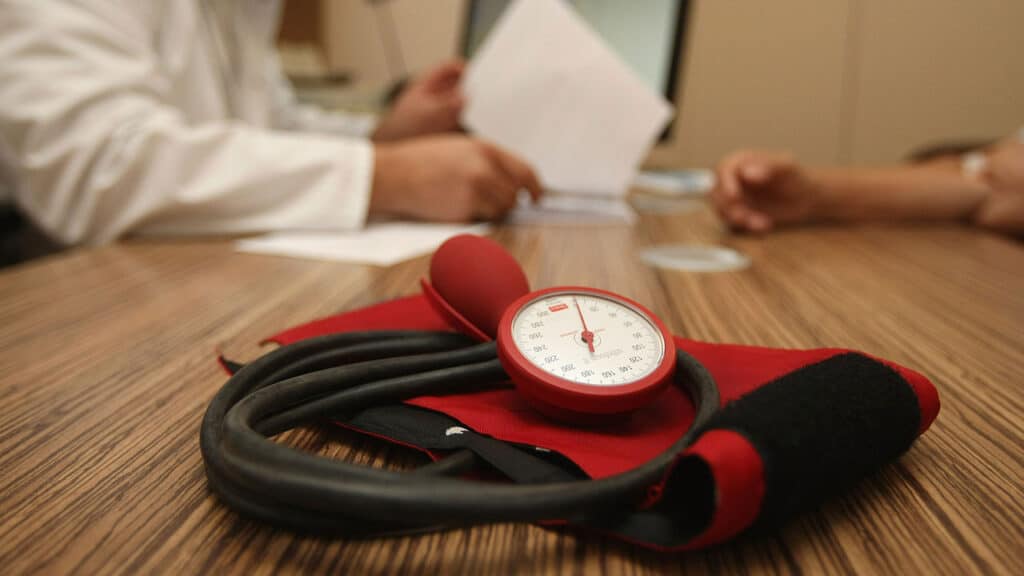1. High blood pressure, properly called hypertension, doesn’t normally cause many symptoms on its own, but it can put you at risk of potentially life-threatening complications like heart attacks and strokes. That’s why you must monitor your blood pressure.
2. Risk factors for high blood pressure include being over 65, being overweight, having an unhealthy diet (particularly one that’s high in salt), consuming too much caffeine or much alcohol, not enough sleep and genetics. Black people are at higher risk than white people, and poor people are more at risk than the affluent. If you have any of these risk factors, take extra care.
3. Testing your blood pressure is the only way to know its level. It’s a standard procedure at many doctor’s visits, but you can also buy a machine to measure it at home. You put the cuff around your arm and it will squeeze you tightly.
4. Blood pressure readings are given as a systolic figure over a diastolic figure. A healthy blood pressure should be close to 120/80 mmHg. If it’s 140/90 mmHg, you may need to take steps to bring it down.
5. Don’t panic if your blood pressure is too high. Many people can manage it with lifestyle changes. You can’t do anything about age and genetics, but you can exercise more and improve your diet. This might be enough to get your blood pressure back to a healthy level.
6. If this is not enough, there are medical interventions available. There are multiple types of blood pressure medication, each with their own advantages and disadvantages, so you’ll need to talk to your doctor to figure out what’s best for you.
7. In some cases, high blood pressure can be a symptom of another condition, such as kidney or hormone problems. In these cases, you may have to treat the underlying cause first.
8. There are some medications that can increase your blood pressure. These include some common anti-inflammatories, cold medicines and the contraceptive pill. Recreational (including illegal) drugs can also contribute to hypertension. Even licorice can have an influence. In these cases, you may need to reduce or outright stop the drug.
9. Keep in mind that you need to be cautious with your blood pressure, but don’t be paranoid about it. It can be managed.
10. Your doctor should be able to answer any concerns.




